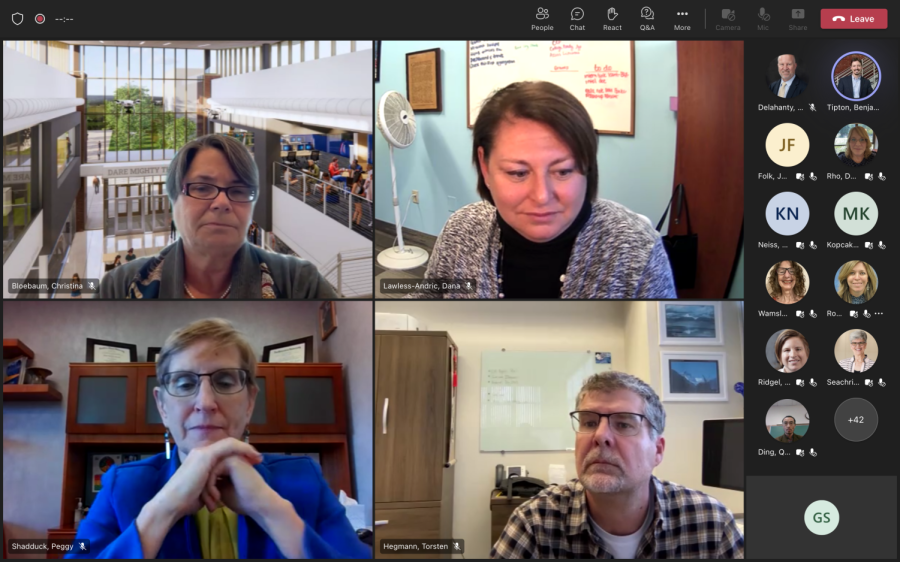Intel grant town hall reveals project plans
A panel of grant contributors presented their work on the Intel grant. The panel asked Kent State faculty for their help implementing the programs moving forward.
October 28, 2022
The Kent State community gathered on a Microsoft Teams call Thursday for a town hall meeting to learn about the university’s grant with Intel and how faculty and professors can get involved.
Kent State recently joined more than 80 institutions in Ohio that are being funded by the multi-billion dollar tech company Intel as part of their Semiconductor Education and Research Program Grants. The university was also recognized as one of seven institutions that will lead a grant proposal.
The grant Kent State will lead, titled Pathways to a Semiconductor Career, will focus on training programs and workforce development for Intel as they build two new semiconductor fabrication facilities in central Ohio.
“We chose to really put a lot of emphasis on curriculum and pathways to earning credentials that would help people in their careers,” said Peggy Shadduck, vice president for regional campuses and dean of the College of Applied and Technical Studies.
Shadduck said the panel began writing the grant by thinking about what Kent State is already good at. One of the university’s strengths is offering many different programs including engineering degrees and engineering technology programs as well as associate’s degrees, master’s degrees and doctorate degrees. This versatility of existing programs is an important factor to Intel.
Additionally, Intel was interested in programs that could teach the older workforce new skills in the semiconductor industry, a program Kent State has already invested in which it calls “lifelong learning.”
“We think about opportunities that may be beyond our regular curriculum that are related to reskilling, to upskilling, providing things in the noncredit realm as well,” Shadduck said. “We have quite a strong reputation in that area.”
Shadduck said Kent State plans to continue to improve in these areas with Intel’s help, such as expanding micro credentialing and making it even easier to gain a focus skill quickly.
Intel is also interested in cultivating a diverse workforce, prioritizing hiring women and minorities at their new facilities.
“Their goal is that at least 50% of the workforce that they hire will be women or minorities or both,” Shadduck said. “That’s a very lofty goal and we would like to leverage our programs to help them get there.”
Shadduck also provided a survey link asking for Kent faculty to outline how they might want to get involved with the grant moving forward.
The university hopes to expand the cleanroom and laboratory facilities as part of the grant. The current facilities are located in the Advance Materials and Liquid Crystal Institute. Director of the institute, Torsten Hegmann, explained some upgrades coming to the facilities.
“We have a range of deposition and techniques that are already available in the cleanroom upstairs but what we really didn’t have was an atomic layer deposition tool,” Hegmann said. “It’s one of the three key deposition techniques that people need to know when they work at Intel … we didn’t have that so we asked for the specific tool as part of this grant submission.”
Looking toward the future, Kent State hopes to begin implementing Intel programming as soon as possible with plans of a summer institute in summer of 2023.
“We’ve got great starting points and good ideas, but things are going to be going fast and hard,” Shadduck said. “So yeah, jump on board now.”
Grace Springer is a reporter. Contact her at [email protected].












